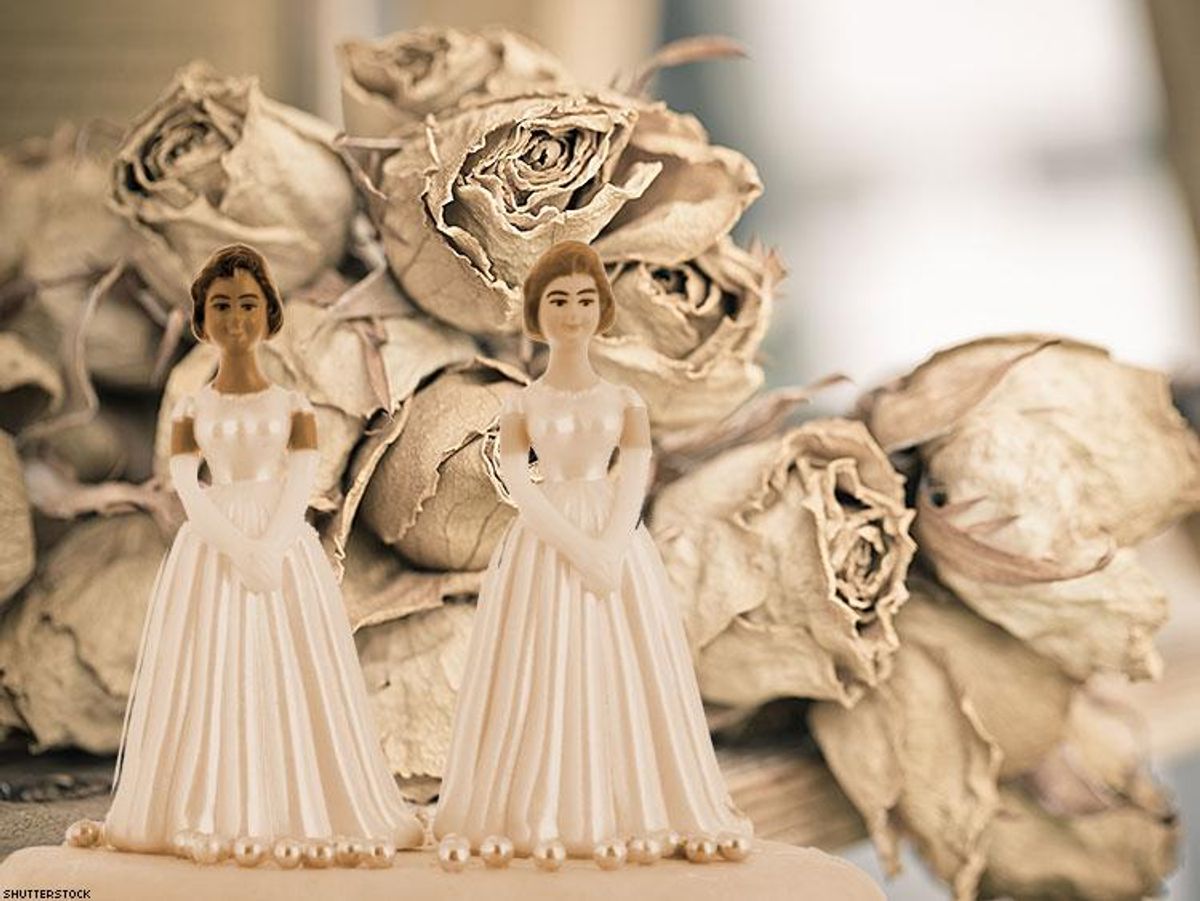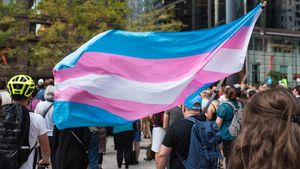It's been nearly five months since the U.S. Supreme Court ruling in Obergefell v. Hodges guaranteed the freedom to marry for same-sex couples throughout America. Most state courts with pending marriage cases promptly implemented the ruling. Today, around 99.9 percent of Americans live in counties issuing marriage licenses to all couples. But in the counties where same-sex couples continue to be denied the right to marry, elected judges are casting aside their duty to follow the law for political reasons.
In Alabama -- where justices run in partisan races -- probate judges in 13 counties still refuse to issue any marriage licenses. Earlier this year, the Alabama Supreme Court ordered probate judges not to issue licenses to same-sex couples, despite a federal court ruling the state's marriage equality ban unconstitutional.
Alabama Supreme Court Justice Tom Parker recently suggested that a state supreme court ruling "would be a proper organ" for resisting Obergefell. Chief Justice Roy Moore, who was elected on an anti-marriage equality platform, predicted that Obergefell would "cause the destruction of our country" and would generate a "great backlash." A lower court judge has asked the Alabama Supreme Court to rule that he can refuse marriage licenses to same-sex couples, due to his religious beliefs.
Politicized, big-money elections create more pressure on judges to rule in a way that pleases voters. Thirty-eight states conduct some kind of election for their supreme courts -- and these races are increasingly indistinguishable from elections for the political branches. Alabama is a prime example: the state has a history of expensive, politicized judicial elections, with supreme court candidates raising more than $58 million since 1993.
Meanwhile, elected justices in Mississippi and Louisiana have issued divided rulings in marriage-related cases, with dissenters arguing for defiance of the U.S. Supreme Court. A disturbing dissent from Louisiana Supreme Court Justice Jefferson Hughes -- who was elected with campaign ads claiming that he was "pro-life, pro-gun, pro-traditional marriage" -- not only suggested that he would not comply with Obergefell, but went on to imply that same-sex parents shouldn't be trusted to adopt children of the same sex. Statements like this suggest that these judges may also be motivated by anti-LGBT animus.
In a recent 5-4 decision, the Mississippi Supreme Court recently granted a divorce to a lesbian couple. But two dissenting justices cited Chief Justice John Roberts's dissent to suggest that Obergefell has no constitutional basis, and thus, the states' marriage ban should stand and the divorce not be granted. Justice Randy Pierce, who put politics aside and joined the majority, also minced no words regarding the political forces at work: "As an elected member of this court, the politically expedient (and politically popular) thing for me to do is to join my colleagues' separate statements and quote the dissenters in the Obergefell case."
Even before the U.S. Supreme Court ruled to make marriage equality the law of the land, elected justices allowed politics to interfere with timely access to justice. In Arkansas, retired Justice Donald Corbin recently said that he and his colleagues on the Arkansas Supreme Court had voted to strike down the state's marriage ban in 2014. But the justices held the case, leaving couples in legal limbo until the U.S. Supreme Court ruling, when the Arkansas justices quietly dismissed the case as moot.
Corbin acknowledged the impact of politics on the court's actions: "From a political standpoint, it was a very hot issue. We were seeing polls taken showing that a vast majority of the people in Arkansas were opposed to same-sex marriage. It wasn't one any of us were looking forward to getting."
Facing political attacks on the independence of the judicial branch, the Arkansas justices put politics before the law. The state legislature had made its feelings known: When an Arkansas judge ruled in favor of marriage equality, legislators called for his impeachment and adopted a resolution threatening to "explore legislative remedies" to prevent "judicial activism." And in a blatant attempt to intimidate the justices hearing the marriage case, the Arkansas Legislative Counsel filed the resolution with the state supreme court.
Judges must decide cases based on the law, not on politics, popular opinion, campaign contributions, or super-PAC spending. In order to protect individual rights, judges must sometimes issue unpopular rulings. While we expect governors and legislators to reflect the will of the majority of voters, judges must protect the constitutional rights of individuals, regardless of the political cost. Judicial elections make that exceedingly difficult -- if not impossible.
BILLY CORRIHER is the director of research for legal progress at the Center for American Progress. ERIC LESH is the fair courts project director for Lambda Legal.












































































